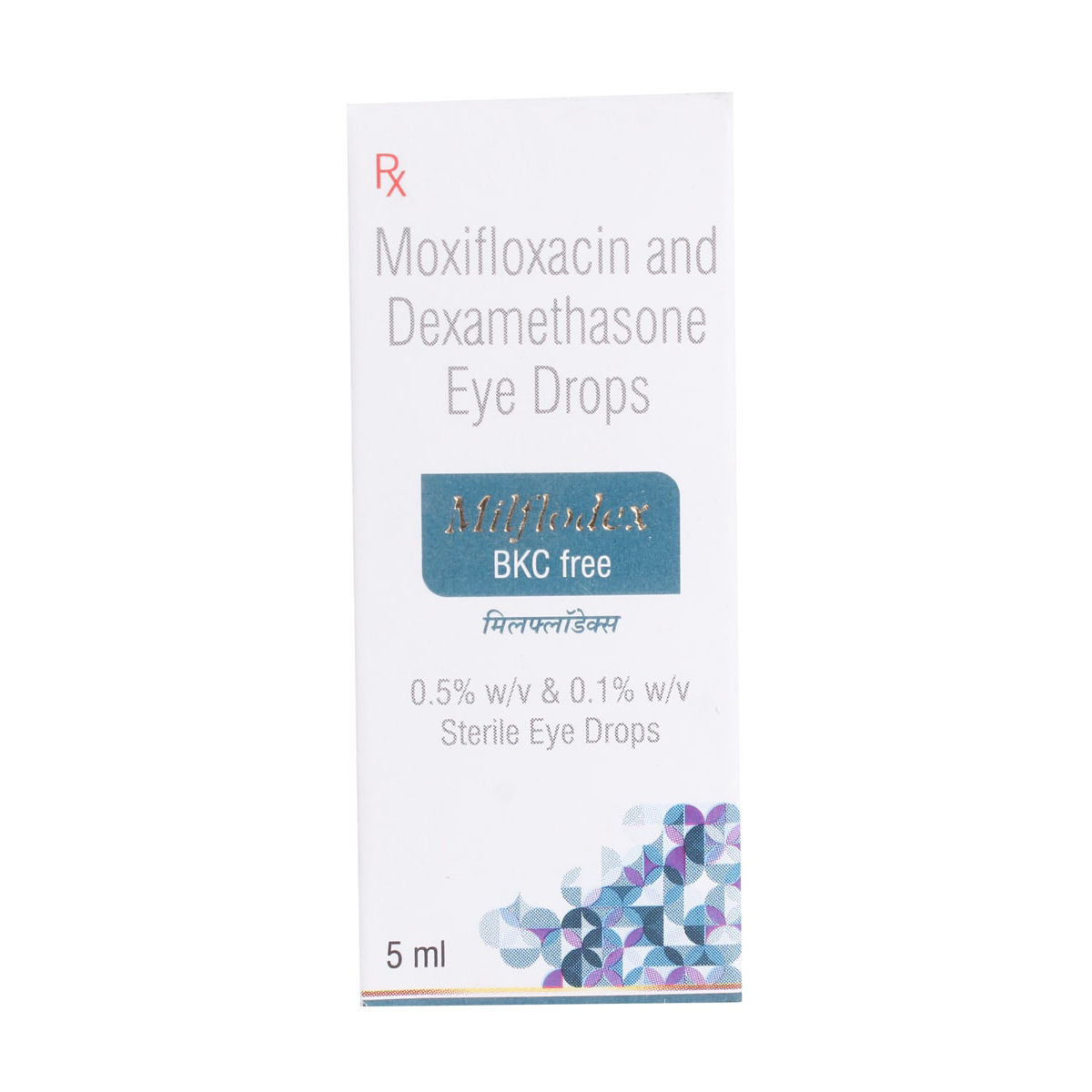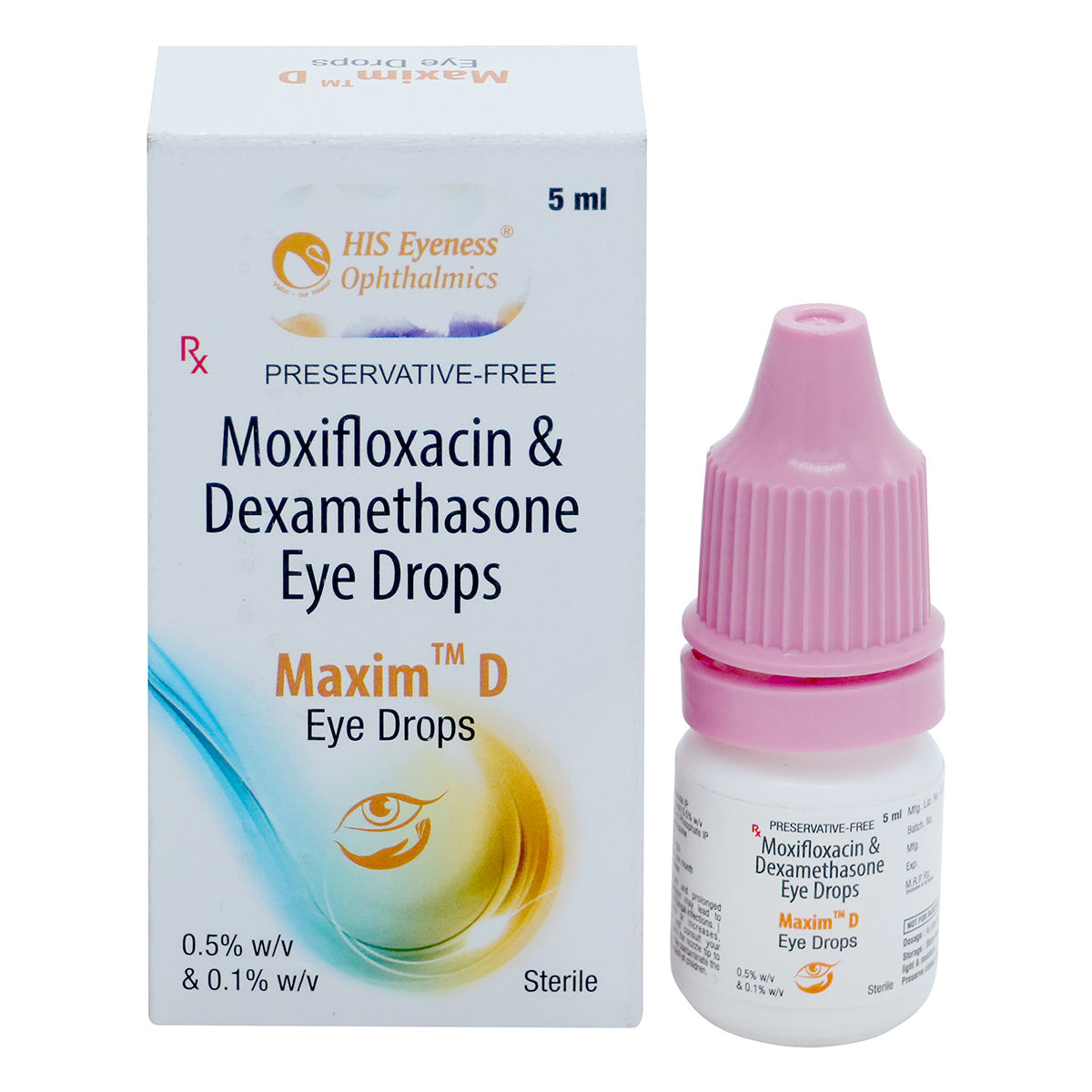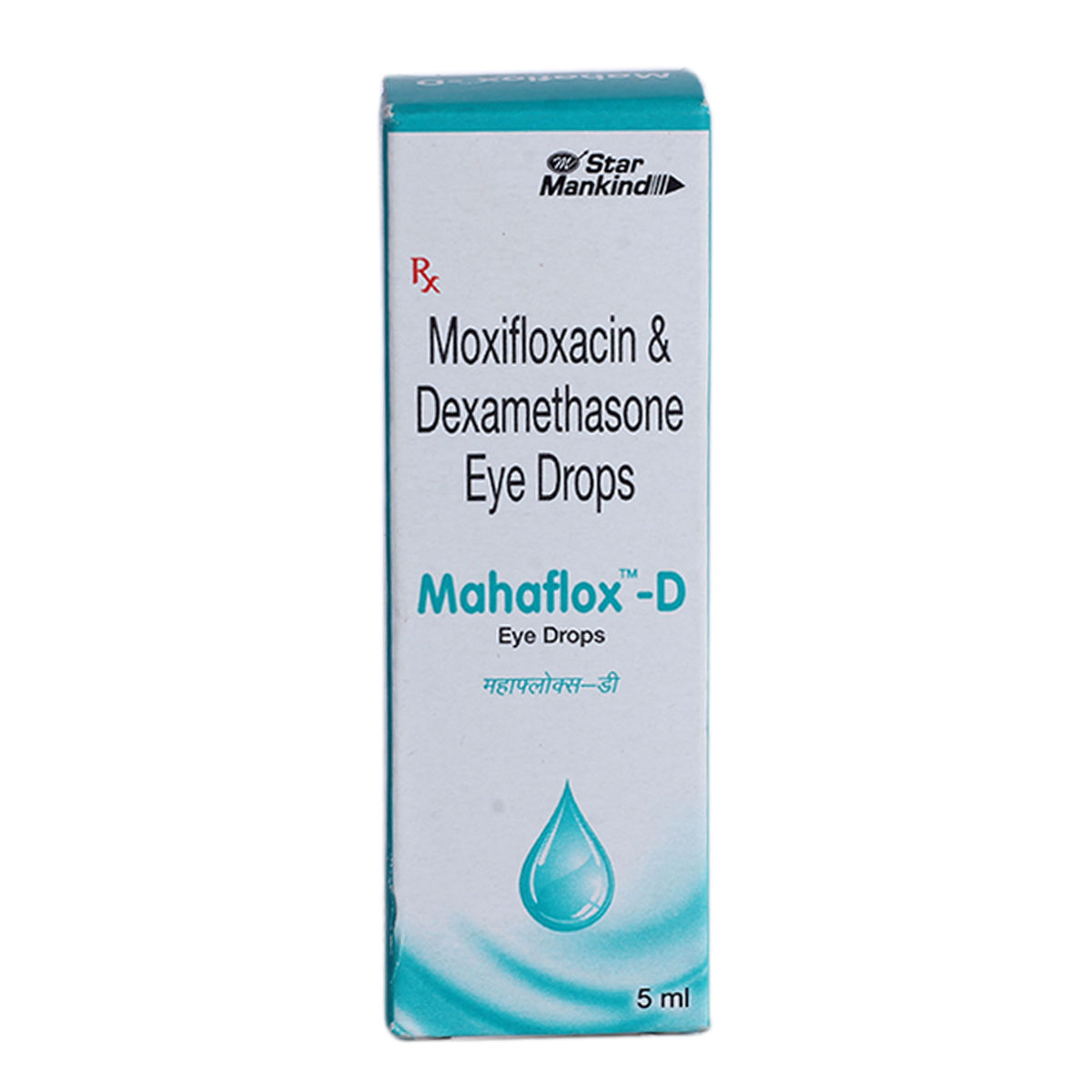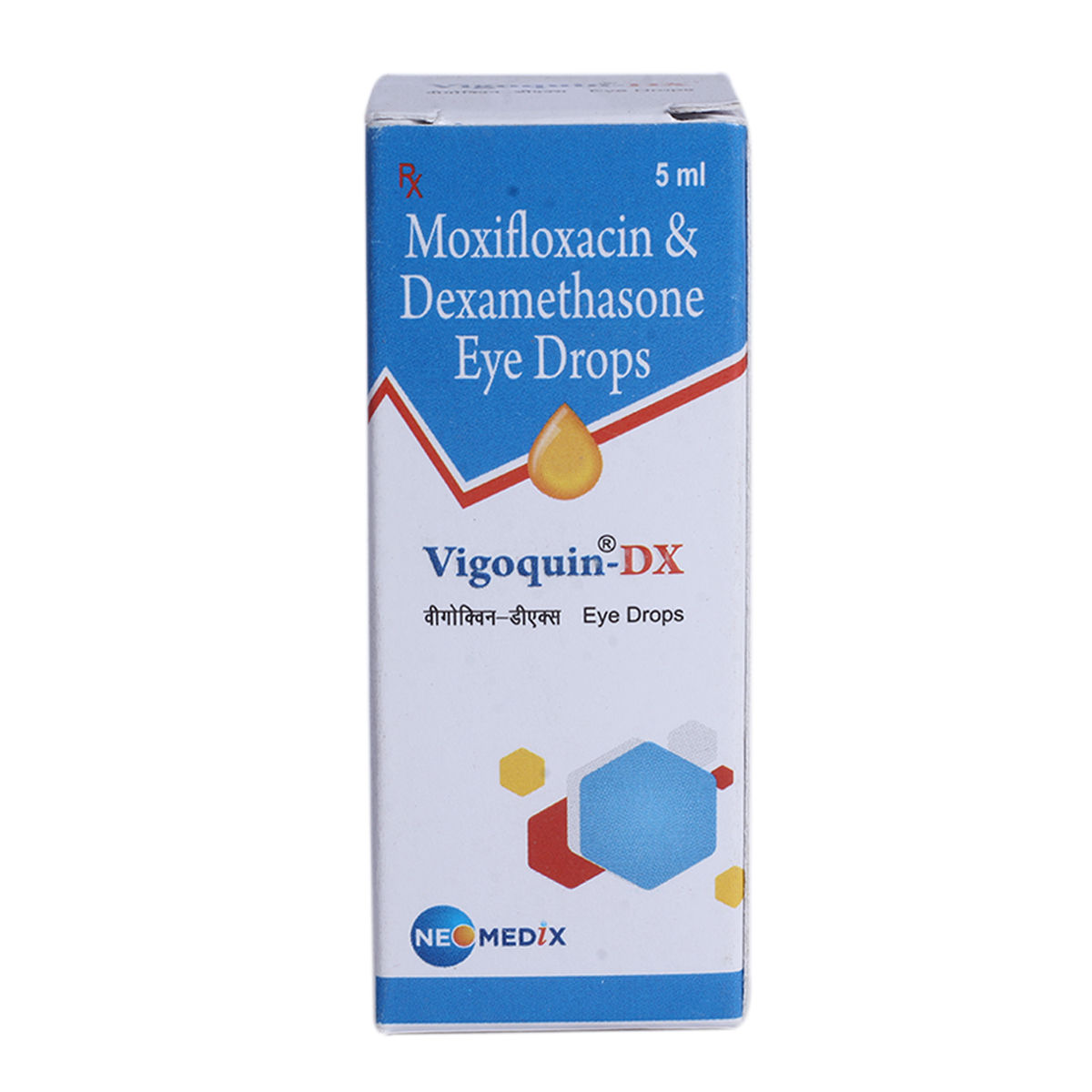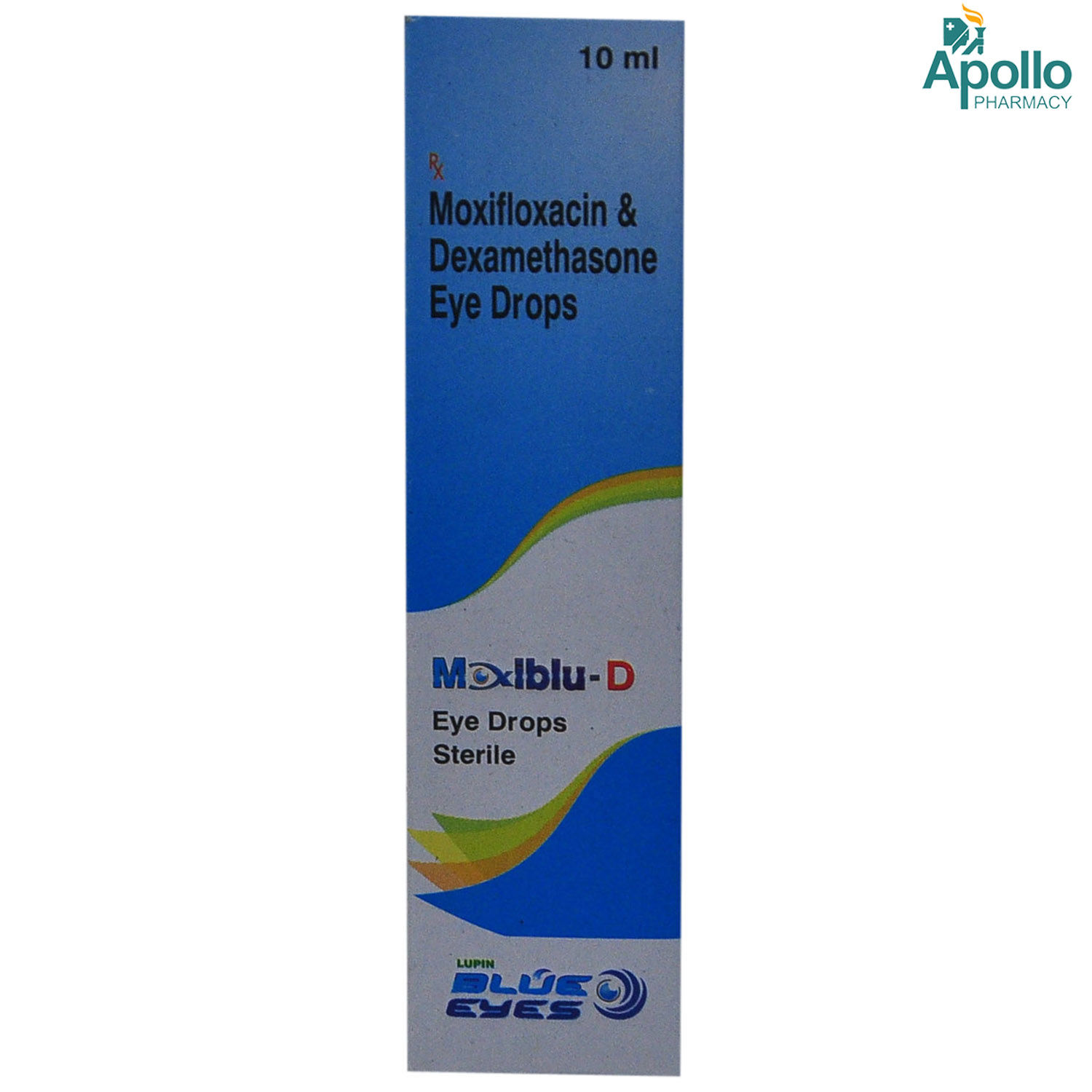Moxib-D Eye Drop
₹99*
MRP ₹110
10% off
₹93.5*
MRP ₹110
15% CB
₹16.5 cashback(15%)
Free Delivery
With Circle membership
(Inclusive of all Taxes)
This offer price is valid on orders above ₹800. Apply coupon PHARMA10/PHARMA18 (excluding restricted items)
Know Your Delivery Time
Provide Delivery Location

Whats That

Secure Payment

India's Most Trusted Pharmacy

Genuine Products
Composition :
Manufacturer/Marketer :
Consume Type :
Return Policy :
About Moxib-D Eye Drop
Moxib-D Eye Drop belongs to the class of ‘antibiotics’ used to treat inflammation associated with bacterial eye infections. It treats eye infections like conjunctivitis (infected conjunctiva) and other inflammatory conditions after eye surgery.
Moxib-D Eye Drop is a combination of two medicines: Moxifloxacin (antibiotic) and Dexamethasone (steroid). Moxifloxacin is an antibiotic that stops bacteria from making a copy of their genetic material (DNA), thereby killing and stopping the growth of bacterial infection. Dexamethasone is a steroid that reduces inflammation and symptoms associated with infection such as redness and irritation by inhibiting the natural substance like prostaglandins that cause inflammation. Thus together Moxib-D Eye Drop prevents spread of redness, allergies, inflammation and bacterial infection in the eyes.
You should use this medicine as prescribed by your doctor. The common side-effects of Moxib-D Eye Drop are application site burning/stinging sensation or redness and temporary blurred vision. While using eye drops, if swelling or sensitivity to light occurs, wash your eyes thoroughly with cold water after 15 minutes. If the condition does not improve, consult your doctor immediately.
Do not use Moxib-D Eye Drop if you are allergic to Moxifloxacin, Dexamethasone, or any contents of it. Before taking Moxib-D Eye Drop, inform your doctor if you have fungal infections, viral infections such as viral infection of the conjunctiva or cornea of an eye, herpes simplex or varicella, or parasitic infections such as amoebiasis. Do not use Moxib-D Eye Drop if you have tuberculosis, damaged cornea, ulceration, lesions with incomplete formation of the covering tissue, and increased pressure inside the eye.
Uses of Moxib-D Eye Drop
Medicinal Benefits
Moxib-D Eye Drop is a combination of two medicines: Moxifloxacin and Dexamethasone. Moxifloxacin is a fluoroquinolone antibiotic that acts by interfering with the formation of essential proteins required for bacterial growth. Dexamethasone is a steroid medicine that has anti-inflammatory properties and acts by inhibiting the chemicals such as prostaglandins that cause inflammation. It also reduces symptoms associated with infection such as redness and irritation.
Side Effects of Moxib-D Eye Drop
Stinging or burning sensation
Redness
Blurred vision
Swelling
Watery eyes
Directions for Use
Storage
Drug Warnings
Before taking Moxib-D Eye Drop, inform your doctor if you have vision problems, severe pain in the eye, glaucoma (raised pressure in the eye), eye injury or eye surgery, or using any other eye drops or eye ointment. Inform your doctor immediately if you notice swelling or weight gain around the trunk or in the face, as it may be a sign of Cushing’s syndrome (high levels of cortisol in the body). Do not use eye drops for longer than recommended by your doctor as it may suppress adrenal gland function and may increase the risk of cataracts (clouding of the eye). Moxib-D Eye Drop should be not be used in the skin conditions like herpes simplex virus infection, or other viral eye infections.
Therapeutic Class
Diet & Lifestyle Advise
- Sleep for at least six to eight hours to rejuvenate your eyes naturally.
- Wash your eyes with clean water at least two to three times a day. Do not wash your eyes if you have undergone any eye surgery for at least 2 weeks.
- Manage stress, eat healthily, drink plenty of water, exercise regularly, and get plenty of sleep.
- Avoid alcoholic beverages as it can make you dehydrated and affect your sleep. This effect can also affect your body’s ability to fight off infections.
Habit Forming
How Moxib-D Eye Drop Works
What if I have taken an overdose of Moxib-D Eye Drop
Alcohol
Safe if prescribed
It is advisable to avoid alcohol intake while using Moxib-D Eye Drop as it may affect your ability to fight infections.
Pregnancy
Unsafe
Moxib-D Eye Drop is a category C medicine. Moxib-D Eye Drop may cause some side effects to the unborn baby or fetus, so it should not be used in pregnant women.
Breast Feeding
Caution
Moxib-D Eye Drop should be used with caution in breastfeeding mothers.
Driving
Caution
Moxib-D Eye Drop may cause vision problems. However, it will be mild and temporary in nature. So, it is advisable to avoid driving until your vision clears.
Liver
Safe if prescribed
Moxib-D Eye Drop can be used for treating eye infections in patients with liver diseases.
Kidney
Safe if prescribed
Moxib-D Eye Drop can be used for treating eye infections in patients with kidney diseases.
Children
Caution
Moxib-D Eye Drop should be used with caution in children. It is not recommended for use in newborns.
Country of origin
Author Details
We provide you with authentic, trustworthy and relevant information
FAQs
Disclaimer
Product Substitutes








